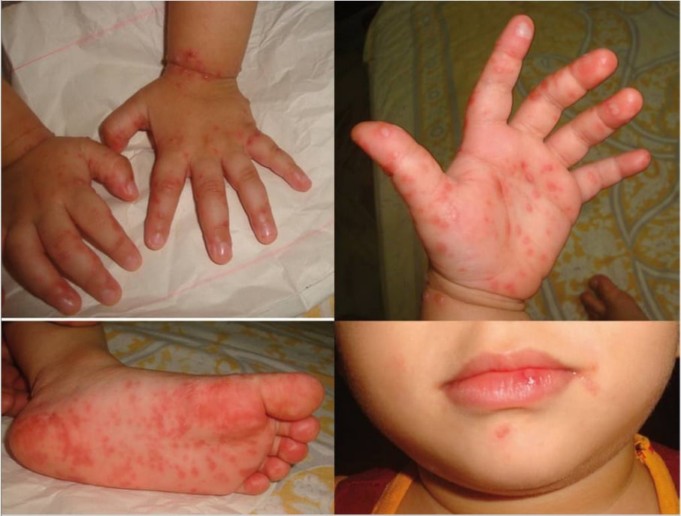This is an illness that causes sores in or on the hand, feet and in the mouth. It could get so bad that the sore could show on the buttocks and legs. Even though this disease is common in adults, children also suffer from it. The sores are usually painful, and the illness could last more than a week. The infection can occur at any time of the year but it very common during summer and fall.
What are the symptoms?
Symptoms may include sore throat fever ranging from 101- 103°F (38-39°C), feeling tired. Sore or blisters may begin to show up after a day or two, and in some cases, a skin rash may appear before blisters show up. On most occasions, the blisters may pop open and crust over, but go away in a week or more, however, in few cases; people may have very mild symptoms or no symptoms at all.
What causes it?
The hand, foot and mouth disease is caused by a virus known as enterovirus that can be contacted through exposer with an infected individual’s nose and throat secretions such as sputum, saliva or nasal mucus, fecal matter and blister fluid. The disease often breaks out entirely within 3-6 days after exposure to the virus. This stage can be known as the incubation period.
How is the disease diagnosed?
Tests aren’t always necessary, and you can have a professional health care provider easily tell by looking at the sores and blisters, plus the symptoms described.
How is the disease transmitted?
Enterovirus may be spread to another person through:
- Close contact with contaminated objects and surfaces
- Close contact with feces
- Personal contact with individuals who are exposed to the virus
- Exposure to coughing and sneezing
Ways spreading of the infection can be prevented?
Since the virus manifests itself in the hand, foot, and mouth, it makes the disease highly contagious as these areas of the body are mostly in use daily. Do well to limit exposure to others, especially if the symptoms are pronounced, such as fever. However, there is no vaccine to protect an individual against the virus, but there are ways to reduce the infections.
Ways to reduce the risk of infection:
- Make sure to have your hands washed after toilet use.
- Avoid contacts like hugging, kissing, sex or sharing kitchen utensils.
- Frequently disinfect and clean surfaces that might have been exposed to the virus.
How is the disease treated?
Usually, the disease usually doesn’t require any treatment, but you could adopt the use of simple home care to relieve the symptoms.
- You could take acetaminophens such as Tylenol or ibuprofen, but check the instructions for side effects. You could also seek a professional opinion.
- Stay away from spicy foods and drinks. They could make your mouth sore and painful.
- Mouth sores might leave your mouth swollen, so it is essential to drink enough liquids to curb dehydration.
- Plenty of cold water is needed to help with make the sore better. Flavored ice creams may also be helpful.












